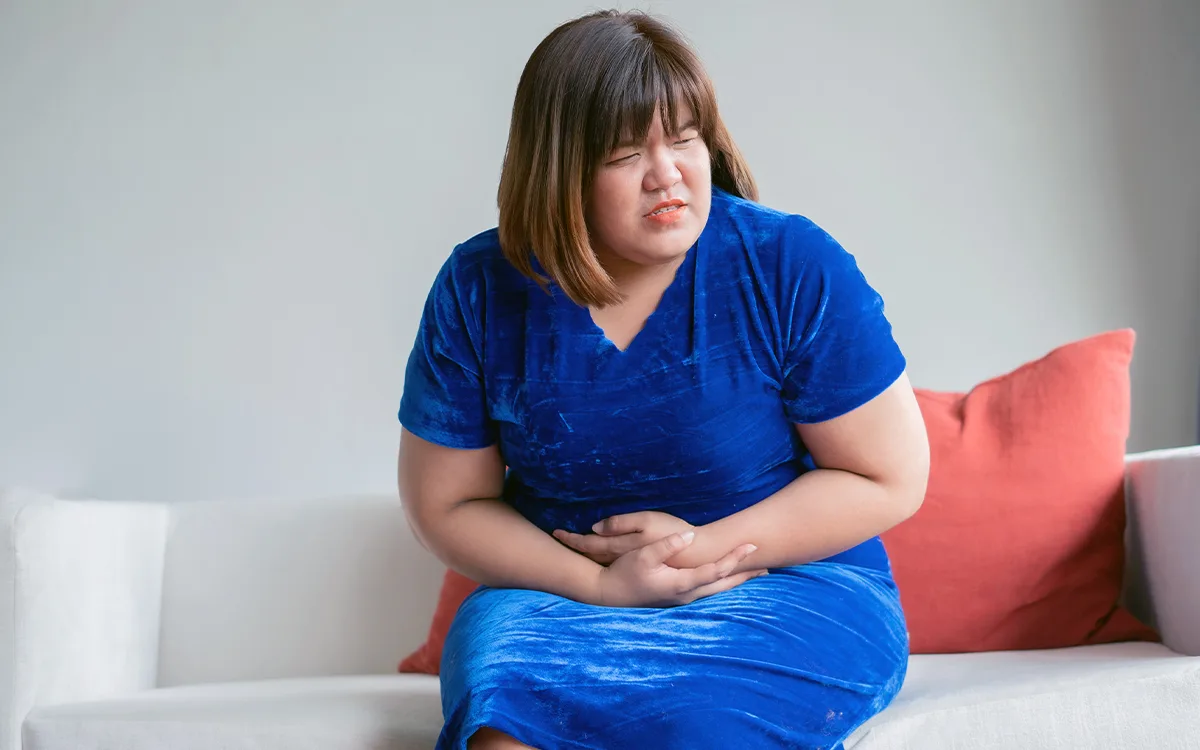Bloating is a common experience many women notice as they go through perimenopause and menopause. It often shows up as a feeling of fullness, tightness, or swelling in the abdomen. For some, it is occasional; for others, it becomes a frequent discomfort. This can be linked to changes in hormones, digestion, and lifestyle habits. Understanding what triggers bloating during this stage of life and knowing how to ease it can make daily living more comfortable.
What happens to your body during menopause?
During perimenopause and menopause, estrogen levels begin to shift. These changes affect many body functions, including digestion, fluid balance, and metabolism. Lower estrogen levels can lead to water retention and changes in how your body processes certain foods, which may lead to bloating.
Menopausal symptoms such as weight gain, mood swings, and irregular digestion can make bloating feel more noticeable. In addition, slower digestion during this stage can sometimes cause gas retention and a heavy feeling in the stomach.
What can cause bloating during menopause?
Several factors can contribute to bloating during menopause:
- Hormonal changes: Fluctuations in estrogen can cause your body to hold more water, leading to water retention and a puffy feeling.
- Slower digestion: Hormonal changes can slow the movement of food through the digestive system, which may lead to gas build-up.
- Dietary triggers: Eating processed foods, salty snacks, or carbonated beverages can cause temporary bloating.
- Larger meals: Eating big meals at once can make bloating worse during this stage.
- Stress and anxiety: Emotional stress can affect digestion and lead to abdominal discomfort.
How does stress affect bloating?
Stress and anxiety are often overlooked causes of bloating. When the body is under stress, digestion can slow down. This may lead to gas retention, constipation, or a feeling of fullness. Managing stress through mindfulness, deep breathing, or gentle stretching can help maintain digestive comfort.
How to manage bloating in menopause?
While bloating may be common during menopause, there are steps that can help maintain comfort and support digestion.
- Eat smaller meals
Instead of three large meals, try having smaller meals throughout the day. This can help ease the workload on your digestive system and ease the feeling of fullness. - Limit processed foods and carbonated beverages
Processed foods often contain high amounts of salt and preservatives, which may lead to water retention. Carbonated beverages introduce extra gas into the digestive system, making bloating worse. - Stay hydrated
Drinking enough water throughout the day helps your body maintain fluid balance. When your body gets enough water, it is less likely to hold on to extra fluid. - Include regular physical activity
Light to moderate activities such as walking, swimming, or yoga can help keep digestion moving and support overall well-being. - Practice deep breathing
Deep breathing exercises help ease stress and can support digestive comfort. Stress and anxiety can often make bloating worse, so relaxation techniques are useful.
What lifestyle habits can help ease menopause bloating?
Adopting certain daily habits can help manage menopausal discomforts, including bloating:
- Eat slowly: Chewing food well and taking time with meals helps digestion.
- Avoid lying down right after eating: Give your body time to process food before resting.
- Limit high-salt foods: Too much salt can lead to fluid build-up.
- Choose fresh over packaged foods: Fresh fruits, vegetables, and whole grains support digestion better than heavily processed items.
Conclusion
Bloating during perimenopause and menopause is a common issue that many women face, often caused by hormonal changes, dietary habits, and lifestyle factors. While it can be uncomfortable, simple steps like eating smaller meals, staying hydrated, limiting processed foods, engaging in regular physical activity, and practicing deep breathing can help maintain comfort. Understanding the link between hormonal shifts and bloating allows you to make choices that support your well-being during this important stage of life.
Checkout This Blog: What supplements help with bloating?

